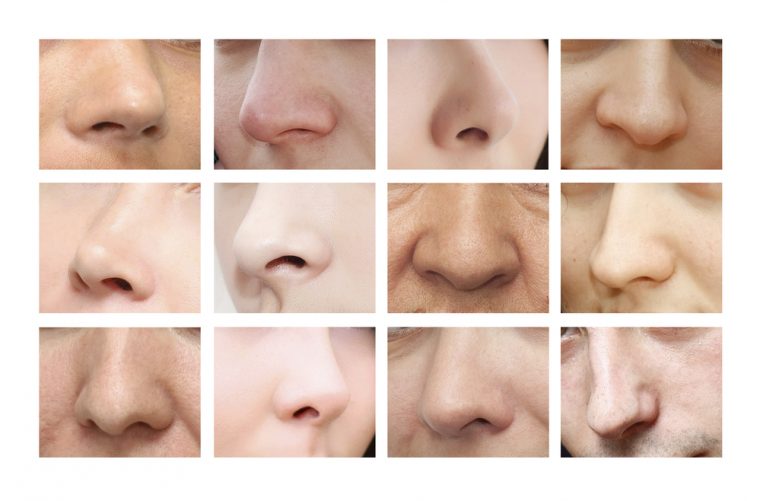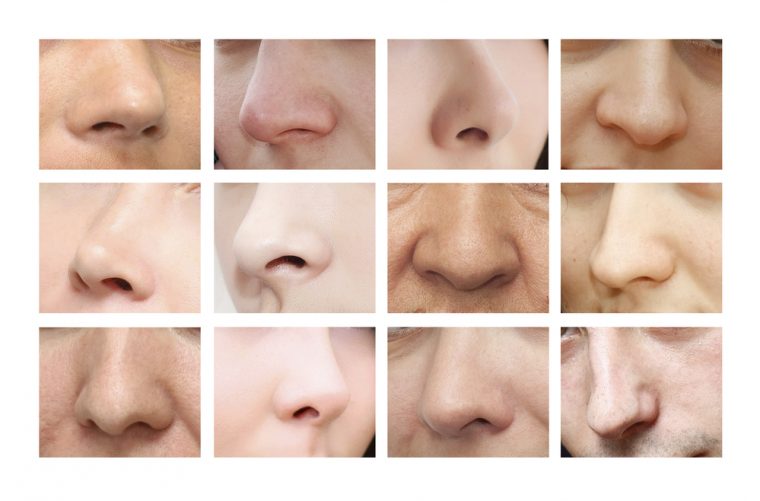
At Alaska Sleep Clinic, we are constantly searching for the latest in education and treatment for sleep disorders. One American doctor we consistently look to for theories and medical advances in sleep is Dr. Steven Park.
Dr. Park is an author and surgeon who helps people who are always sick or tired to once again reclaim their health and energy. His passion is to identify and empower people to overcome sleep-related breathing problems, which most people don’t realize is the real reason for many of their common medical ailments.
The following is an article Dr. Park recently published on his website, https://doctorstevenpark.com/:
A consequence of being a sleep doctor is that I constantly get bombarded with questions about sleep by complete strangers at parties, gatherings, and especially on airplanes. It seems that almost everyone I meet has or knows someone that can’t sleep. They’ve tried all the typical methods and hacks recommend by friends or found online, with minimal to no success. At this point, I use NOSTRILS as a reminder of the 8 important steps to help those of you that are struggling to fall or stay asleep.
Before I describe the 8 things to consider, my basic premise is that all modern humans have smaller jaws and airways, predisposing everyone to various degrees of breathing problems at night. If you had wisdom teeth removed, or needed braces, then you’re at risk. Crooked teeth come from smaller jaws, which leads to more narrow airways from the tip of your nose to your voice box.
Breathing problems result during sleep, leading to various physical ailments that are so common in our society today. This is what I talk about in my book, Sleep Interrupted: A physician reveals the #1 reason why so many of us are sick and tired.
Nose:
Being able to breathe optimally through your nose is the single most important thing to start with. If you can’t breathe through your nose, this will force you to mouth breathe, which causes more obstructed breathing, as explained in my last post. If you are breathing well through your nose but suddenly suffer from an allergy attack, you begin to toss and turn, because your nose is more stuffy. This is due to the vacuum effect that’s created in your throat like what happens when you suck on a straw with the other end pinched closed. (Read my free report on How to Unstuff Your Stuffy Nose.)
Oxygen:
Getting more oxygen is commonly touted as being more healthy. This is a myth.
- The air you breathe has plenty of oxygen that’s available to your body. When you stop breathing multiple times at night, it creates a stress response that shuts down blood flow to your gut, your reproductive organs, and higher-level areas of your brain. As this problem worsens, it can carry over into the daytime, leading to poor oxygenation of tissues that are required for optimal health.
- Another important process that lowers oxygen to your body occurs when you don’t breathe through your nose. The nose makes a gas called nitric oxide, which dilates blood vessels. Once this gas reaches your lungs, it relaxes smooth muscles in your blood vessels allowing more oxygen absorption. Bypassing the nose while breathing can result in 10 to 20% lower oxygen intake.
- Lastly, if you have obstructive sleep apnea, long pauses in breathing can definitely deprive your brain and body of oxygen.
Sleep Position:
Due to smaller jaw development and narrowed airways in modern humans, most modern people prefer to avoid sleeping on their backs. However, if something happens to force you to sleep on your back (such as an injury or surgery), your sleep quality can go downhill rapidly.
Certain professionals advise people to sleep on their backs. For example, chiropractors advise supine sleep for better spinal alignment. Dermatologists recommend against side or tummy sleep due to the increased risk of facial wrinkles. Ideally, back sleep is preferred, but if you can’t breathe properly, then your sleep quality drops, and you end up aging faster with more facial wrinkles. Traditionally, doctors recommended pinning a sock filled with a tennis ball behind your back, but these days, there are more effective sleep positioners that can be found online (Slumberbump and others)
Timing:
Proper timing of when you eat dinner is the single most important thing to consider if you want to get a great night’s sleep. Since most modern humans stop breathing occasionally (even without sleep apnea) any additional stomach juices can be forced up into your throat, causing more inflammation and swelling with more obstructions and less efficient sleep. Poor sleep, in general, promotes weight gain, and this can aggravate sleep-breathing problems.
Relaxation:
In my book, Sleep Interrupted: A physician reveals the #1 reason why so many of us are sick and tired, I explain that frequent obstructions with brain wave arousals lead to fragmented sleep, which in turn, intensifies your body’s physiologic stress response. Whether physical, emotional, or psychological, your body reacts to stress the same way. The biological consequences of stress is well described in Dr. Robert Sapolsky’s book, Why Zebras Don’t Get Ulcers. This is why whatever you can do to reduce stress is vital to getting a good night’s sleep. Regular exercise, routine breaks, deep breathing exercises, yoga, or meditation are common options you can choose from.
However, if you physically can’t breathe due to a severely deviated nasal septum or huge golf ball-sized tonsils, then no amount of breathing exercises or relaxation techniques will help to calm you down.
Ingestion:
You are what you eat and food is medicine. It’s common sense that eating a healthy diet while minimizing damaging toxins and chemicals is important for good health and well-being. I discussed these issues extensively in my past podcasts (How I Stay Thin and Healthy and Toxins).
Light:
Lower your exposure to artificial lights, especially computer/phone screens, or fluorescent lights after dinner. Light, especially blue light, lowers melatonin, which starts to rise about 2 hours before your natural sleep time. Spend more time outdoors and expose your eyes to indirect sunlight during the day. Expose more of your skin to sunlight to get the benefits of natural vitamin D (hormone) production.
There are many documented benefits of healthy levels of Vitamin D, including protection against cancer. One study looked at this question and concluded that a moderate increase in sun exposure may lead to improved overall cancer survival, over the risk of developing skin cancer.
Sleep Hygiene:
This section includes all the basic fundamentals of good and healthy sleep habits and thoughts. You can find more important about his in my interview with Dr. Gregg Jacobs, author of Say Good Night to Insomnia: The Six-Week, Drug-Free Program Developed At Harvard Medical School. In short, here are the 7 basic steps:
- No eating close to bedtime
- Don’t sleep on your back
- No electronic screens before bedtime
- Use the bed only for sleep and sex
- Don’t eat in bed
- If you can’t fall asleep within 30 minutes, get up and do something quiet or relaxing for 10-15 minutes.
- If you normally take 2 hours to fall asleep in bed, stay up until 30 minutes before your typical sleep time.
Make Good Sleep a Priority Habit:
Many of you are still struggling with getting a good night’s sleep. You may have tried various sleep remedies, pills, hacks or even sleep apnea treatment options. Unfortunately, there’s no single technique or pill that’s going to solve your sleep problems.
Optimal sleep is a cumulation of habits, thoughts, and actions that layer on top of one another. Additionally, many doctors miss the fact that there may be a breathing problem on top of your bad thoughts or habits. If you’re overweight, then that needs to be addressed as well. The challenge in losing weight is that poor sleep promotes weight gain.
Always start with the basics described above. If the above steps don’t help, then see a sleep professional. If you have any breathing problems, see your primary care doctor or an ENT surgeon as well. Some people with sleep problems do well with just eating an early dinner and improving nasal breathing. Others need to layer on the other steps mentioned. If none of these remedies help, it’s time to see a sleep physician.
Remember, getting a great night’s sleep doesn’t happen by taking a pill or using a device. It’s a focused and determined lifestyle of slowly layering on different techniques to not only improve your sleep quality but to maintain it as well.
At Alaska Sleep Clinic, our motto is “Improve Your Sleep. Improve Your Life.” So simple and SO TRUE! Call us today for your free sleep assessment with a board-certified sleep specialist.
![trust-bbb_torchaward_graphics_TorchAwards_header_finalist[1]](https://www.alaskasleep.com/hs-fs/hubfs/trust-bbb_torchaward_graphics_TorchAwards_header_finalist%5B1%5D.png?width=2001&name=trust-bbb_torchaward_graphics_TorchAwards_header_finalist%5B1%5D.png)
Dr. Park’s Bio:
Dr. Steven Y. Park is an author and surgeon who helps people who are always sick or tired to once again reclaim their health and energy. For the past 13 years in private practice and 6 years in academia, he has helped thousands of men and women breathe better, sleep better, and live more fulfilling lives. His passion is to identify and empower people to overcome sleep-related breathing problems, which most people don’t realize is the real reason for many of their common medical ailments.
Dr. Park is a native of New York City. He received his undergraduate degree from The Johns Hopkins University and his medical degree from Columbia University’s College of Physicians & Surgeons. His otolaryngology residency training was completed at Albert Einsten/Montefiore. He is a:
- Fellow of the American Academy of Otolaryngology – Head & Neck Surgery
- Member of the American Academy of Sleep Medicine
- Board-certified in Otolaryngology (ear, nose, throat) – Head & Neck Surgery
- Board-certified in Sleep Medicine
- Actively involved in teaching residents and other surgeon in cutting-edge surgical techniques.
Dr. Park practices integrative medicine and surgery, with a firm belief that other models of health and disease can complement traditional, Western medicine. He has provided monthly live tele-seminars with experts not only related to obstructive sleep apnea, but also professionals in other areas—he has interviewed an acupuncturist, dietician, and a neuro-linguistic programming and hypnosis expert in the past. He firmly believes that one must treat the whole person first, including addressing his or her diet, lifestyle, stresses and emotional states, rather than focusing on one simple symptom or area of the body.
He is a published author of the book, Sleep, Interrupted: A physician reveals the #1 reason why so many of us are sick and tired.












